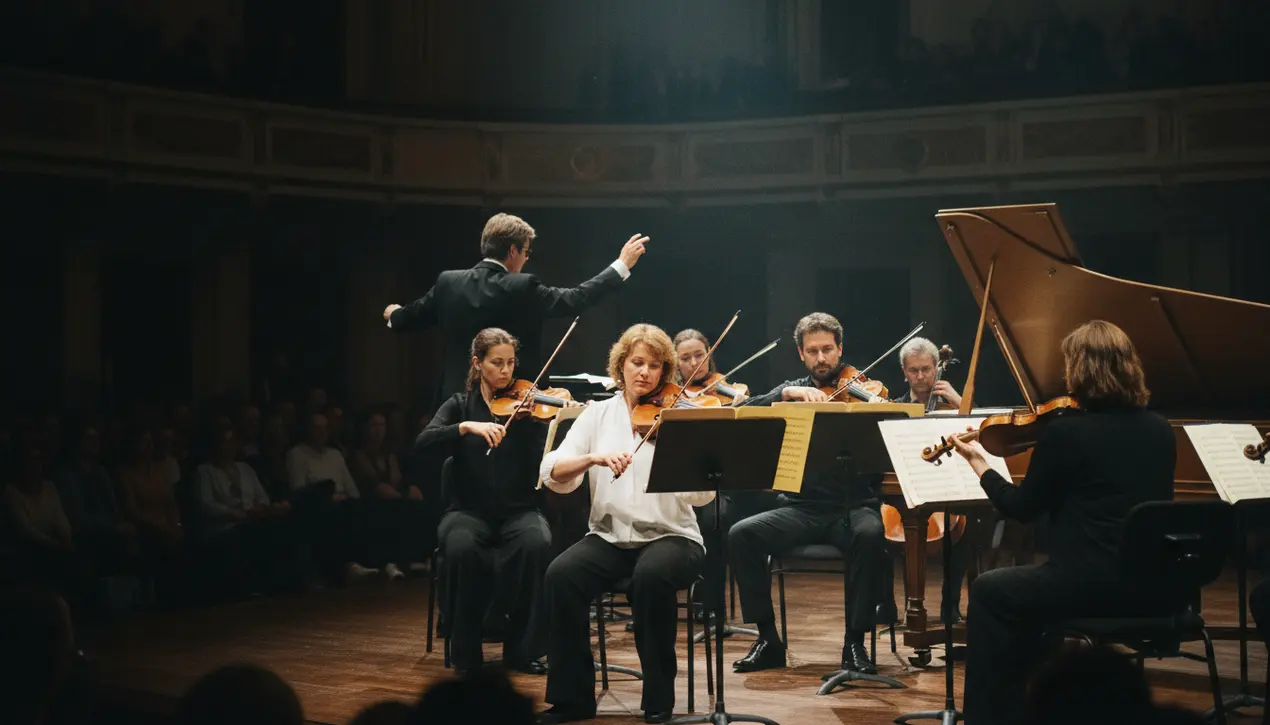
Entertainmentmusic
Lost Bach compositions premiered after 320-year absence.
BR
Brian Miller
1 hour ago7 min read1 comments
In a moment that feels less like a standard concert premiere and more like a long-lost track finally being unearthed from the vaults, the classical music world is experiencing a seismic event worthy of its own Grammy spotlight. The recent discovery and subsequent performance of lost compositions by Johann Sebastian Bach, silent for over three centuries, is the cultural equivalent of finding a never-before-heard Beatles session tape or a pristine copy of a legendary blues recording thought destroyed.For 320 years, these pieces existed only as whispers in academic circles, ghost notes in the grand symphony of the Baroque master's known work. Their premiere wasn't just a recital; it was a resurrection, a time capsule cracked open to let the 18th century breathe directly into our own.Germany's Culture Minister captured the collective awe, labeling the event a 'great moment for the world of music,' a statement that lands with the understated power of a perfectly resolved chord progression. Imagine the scene: the hushed anticipation of the audience, the musicians on stage handling sheet music that is both ancient and brand new, the first notes filling the hall—a sound last heard when Bach himself might have been at the harpsichord.This isn't merely adding a few more songs to the catalogue; it's a fundamental recalibration of our understanding of a genius. It’s like discovering that your favorite artist, whose entire discography you thought you knew by heart, had a secret, brilliant phase you never knew about.The process of authentication itself is a story of modern musicology meeting historical detective work, involving painstaking analysis of handwriting, paper composition, and stylistic fingerprints, a meticulous effort to ensure these were not mere attributions but the real, unadulterated deal. For performers, it presents a unique challenge and privilege: there is no established tradition, no century of interpretive precedent to fall back on.They are the first, setting the template for how these works will be played for generations to come. The implications ripple outward, offering fresh insights into Bach’s creative process during a specific period of his life, potentially revealing new thematic obsessions or compositional experiments he was exploring.It forces a rewrite, however slight, of the musical history books and adds new colors to the palette we use to understand the Baroque era. In an age of digital saturation and fleeting trends, the re-emergence of such foundational art is a profound reminder of music's enduring power to surprise, connect us across centuries, and speak with a voice that never truly fades, even after a 320-year intermission.
#Bach
#classical music
#lost compositions
#rediscovery
#premiere
#cultural heritage
#featured
Stay Informed. Act Smarter.
Get weekly highlights, major headlines, and expert insights — then put your knowledge to work in our live prediction markets.
Related News
Comments
Loading comments...
© 2025 Outpoll Service LTD. All rights reserved.